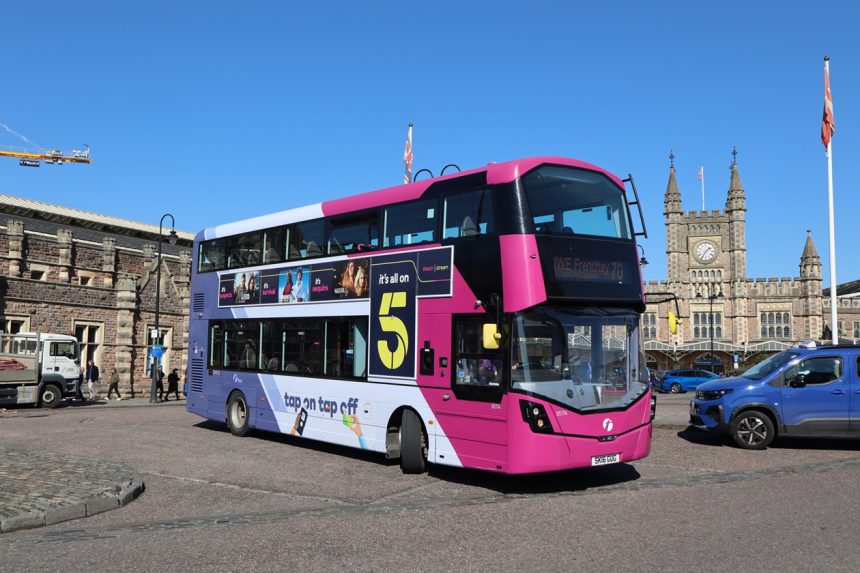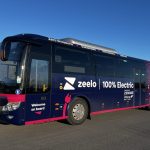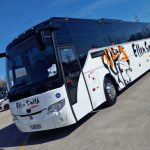The Department for Transport (DfT) has awarded an additional £37.8 million of funding to 12 local authorities that were successful in the second round of the Zero Emission Bus Regional Areas (ZEBRA 2) scheme in England. It will facilitate the purchase of 319 further buses in those areas, including repowered models.
That vehicle total is above the already-announced zero-emission buses and accompanying infrastructure that will be part-funded by successful bids to ZEBRA 2.
DfT says it is “encouraged that UK-based manufacturers are well placed” to benefit from the 319-vehicle uplift. The Department claims that 60% of previous orders via ZEBRA are being procured from domestic builders.
It is thought that the money announced on 8 April is not previous ZEBRA 2 funding that has been returned but a new allocation to zero-emission bus purchase for FY2025/26.
The West of England Combined Authority accounts for the biggest share of the £37.8 million. It will get almost £19.9 million, part-funding 160 zero-emission buses above those already in hand via a successful ZEBRA 2 bid involving First West of England.
That operator will also take the 160 further buses, with First putting £70 million towards the additional procurement. It will take to 258 the number of battery-electric buses in its West of England fleet.
Depots at Bath and Lawrence Hill in Bristol will be electrified. 27 of the 160 vehicles will be repowered examples in what is thought to be a first for government-funded zero-emission bus support.
By value, the additional allocations are:
West of England Combined Authority: £19.89 million for 160 buses
Hull City Council: £3.91 million for 42 buses
Nottinghamshire County Council: £2.68 million for 42 buses
Brighton and Hove City Council: £2.36 million for 13 buses
Staffordshire County Council: £2.21 million for nine buses
Surrey County Council: £1.74 million for 12 buses
Reading Borough Council: £1.35 million for eight buses
Isle of Wight Council: £1.29 million for nine buses
Wiltshire Council: £1.18 million for seven buses
Devon County Council: £772,000 for 10 buses
Torbay Council: £361,000 for six buses
Leicestershire County Council: £126,000 for one bus.
Allocations via ZEBRA 2 announced in March 2024 can be found here. DfT says that the vehicles part-funded by the supplemental sums will be in service by spring 2027, and adds that for every £1 of public funding, at least £3 of private money will be invested.
The Go-Ahead Group is among beneficiaries of the additional funding. In 2024 it agreed a major framework deal with Wrightbus for battery-electric buses.
Says Go-Ahead Bus CEO Matt Carney: “We are very grateful to DfT for this continued partnership. Together we are investing in even more zero-emission buses so that customers across the UK can access cleaner, greener public transport.
“This funding will support new zero-emission buses in Hull, Salisbury, Brighton and Hove, Plymouth, and the Isle of Wight.”
The Confederation of Passenger Transport (CPT) has welcomed the further money. Director of Policy and External Relations Alison Edwards describes buses as “a lever in achieving the government’s missions of kickstarting economic growth and breaking down barriers to opportunity.”
She underlines CPT’s existing call on ministers to further recognise that in the forthcoming Spending Review via demonstration of a commitment to sustainable and accessible public transport, of which “buses are at the heart.”



























